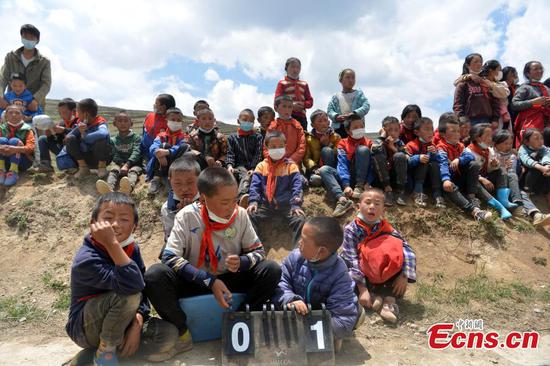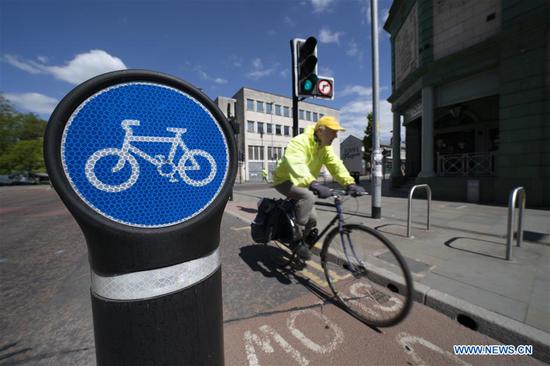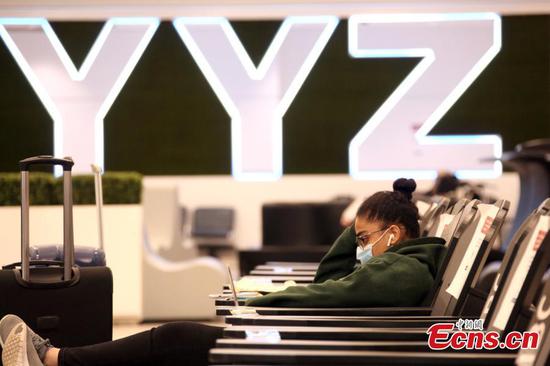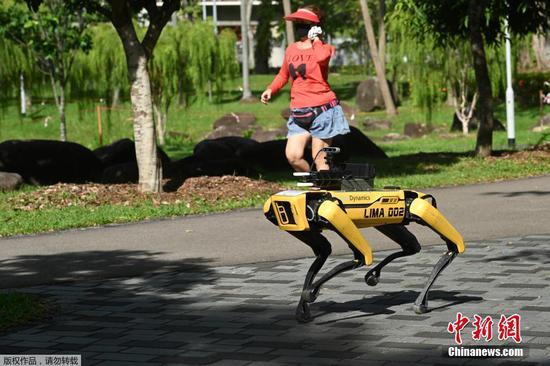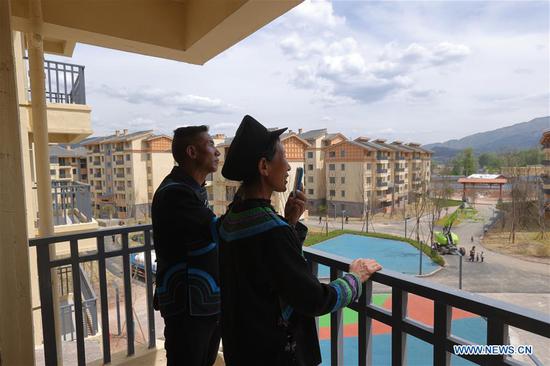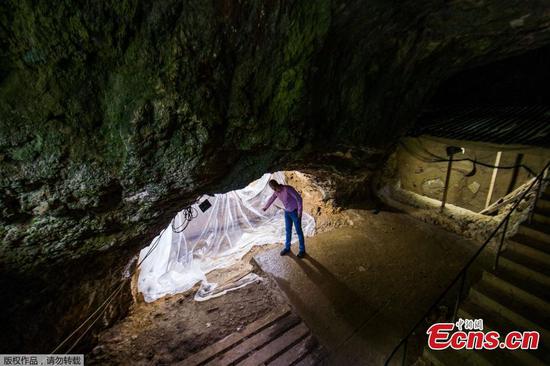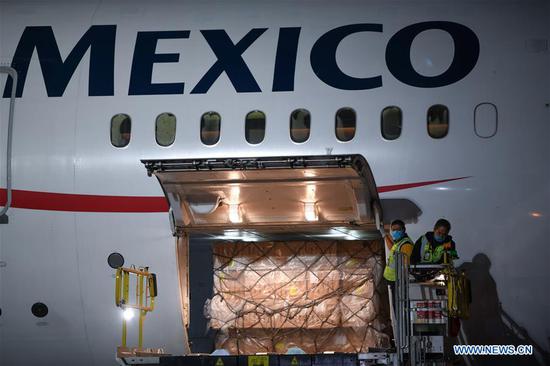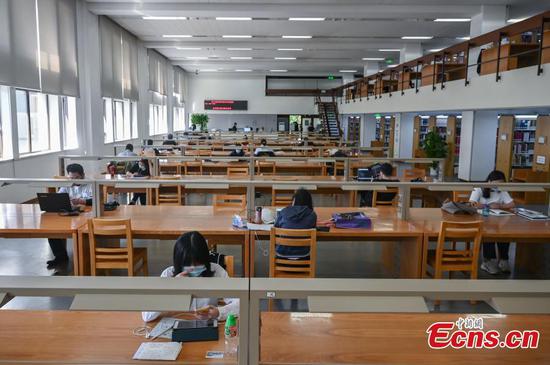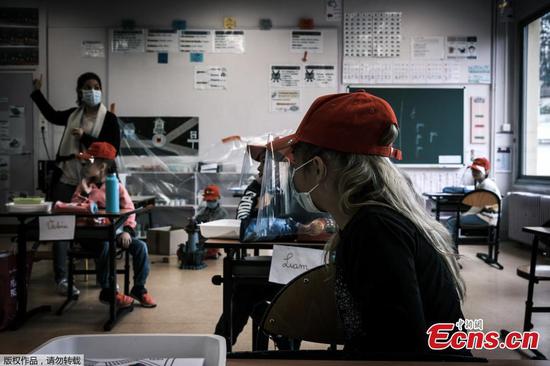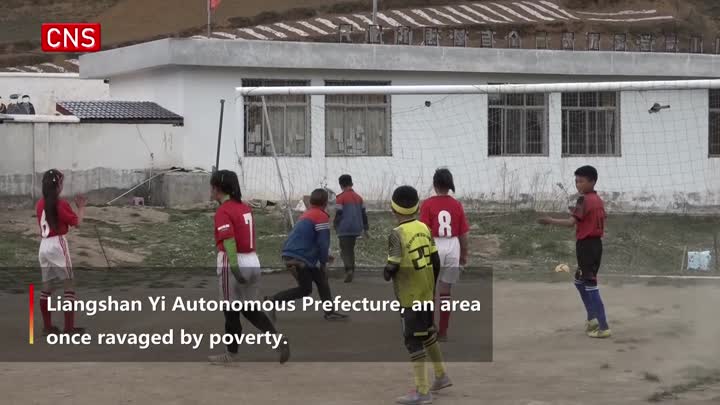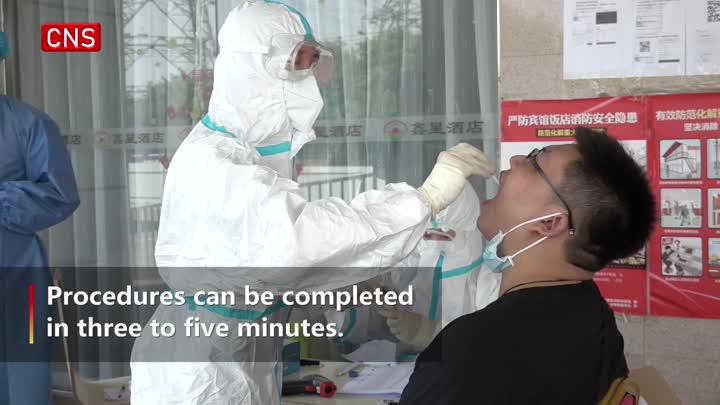The U.S. education system has been changed for the foreseeable future following the novel coronavirus outbreak, with teachers, schools and students forced to adapt to a new normal overnight, said experts.
Millions of middle school, high school and college students across the country have worked at home since March after President Donald Trump declared a national emergency due to the COVID-19 pandemic.
California State University, the nation's largest four-year public university system with 480,000 undergraduates, said Tuesday that classes at its 23 campuses would be canceled for the fall semester, with instruction taking place almost exclusively online.
"Anything done on a campus this fall won't be as it was in the past," Timothy P. White, chancellor of the system, told the board of trustees.
Several public school systems, including New York City's, the nation's largest, have said that they will cancel classes for the rest of the school year and have not determined whether classrooms will reopen in September. Nationwide, universities are also deciding whether to open this fall.
Ryan Baker, a professor of education at the University of Pennsylvania who studies how data can be used to improve online learning, believes that teachers and lecturers at all levels have had to accelerate their use of remote teaching amid COVID-19. He said university lecturers adapted better than K-12 teachers because the former had more experience teaching online classes.
"We were already making a big move toward (teaching remotely)," Baker told China Daily. "If you had looked back to the fall, you would have said there was a gradual increase in online teaching. Often there is a lot you can do online that you can't do in classrooms (like) rich idiosyncratic discussions that offer up more voice to students that are slower or quieter to react or want to think through what they say, adaptive learning. I think that it will keep on going up in usage."
At some schools, standardized tests are not taking place. Many colleges have temporarily waived SAT and ACT requirements.
Exams are also different. The University of Washington and others are conducting exams without a teacher in the classroom by using a system called Proctorio. It uses software to monitor a student's gaze to see if they are looking away from their screens, which could indicate cheating.
While innovative, many students say they don't enjoy using it. In the last month, Proctorio administered 2.5 million exams — a 900 percent increase from the same period last year, the company said.
Several other tools exist to monitor students in lieu of an actual teacher being in the room, including Examity, Honorlock and ProctorU.
But for some schoolchildren, adapting to changes in education isn't the problem. Access to high-speed internet is, with at least 21 million Americans not having it, many of them children of school age.
"We have seen a lot of the inequities of the (education) system," Baker said. "The different access to technology, the different level of support for students in different places, even in well-resourced wealthy districts … much less in places like Philadelphia."
In New York, hundreds of thousands of schoolchildren don't have an internet-connected device because they are homeless and living in shelters or they are from low-income families. This led the New York City Department of Education (DOE) to partner with Apple (the city is purchasing 300,000 iPads), as well T-Mobile, Verizon and Spectrum to provide internet and Google for online learning programs.
Miranda Barbot, a DOE spokeswoman, told the New York Post it was a long-term investment "that will be used as an educational tool long after the COVID crisis passes".
Blackboard, a 20-year-old company, and 10-year-old Canvas, are other popular learning management systems used by U.S. colleges. Teachers can post assignments resources on them in order to foster discussion. Other teaching tools include video conferencing to conduct classes and lectures.
Paul Reville, who teaches educational policy and administration at the Harvard Graduate School of Education, wants education to be more responsive to students' needs.
"Why not construct a system that meets children where they are and gives them what they need inside and outside of school in order to be successful?" Reville told the Harvard Gazette.























